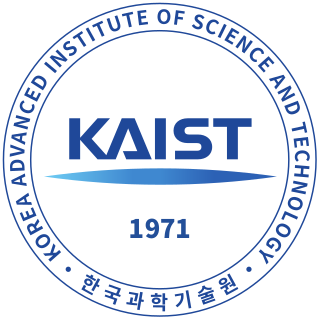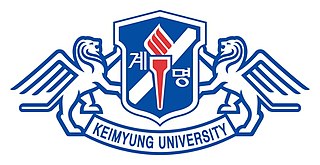External links
- National Education Information System
- Korea Education and Research Information Service
- KCTU explanation of NEIS
| National Education Information System | |
| Hangul | |
|---|---|
| Hanja | |
| Revised Romanization | Gyoyuk Haengjeong Jeongbo Siseutem |
| McCune–Reischauer | Kyoyuk Haengjŏng Chŏngbo Sisŭt'em |
The National Education Information System,or NEIS,is a computer network maintained by South Korea's Ministry of Education. It contains records on every teacher and student in South Korea,and is built on a Linux-style platform.
The implementation of the NEIS in 2003 nearly touched off a nationwide teacher's strike by the Korean Teachers' Union,which continues to advocate passive resistance to the system. The NEIS has been managed by Korea Education and Research Information Service (KERIS) since its opening.
The NEIS website can be accessed only from authorized computers.

The Korea Advanced Institute of Science and Technology (KAIST) is a national research university located in Daedeok Innopolis, Daejeon, South Korea. KAIST was established by the Korean government in 1971 as the nation's first public, research-oriented science and engineering institution. KAIST is considered to be one of the most prestigious universities in the nation. KAIST has been internationally accredited in business education, and hosts the Secretariat of the Association of Asia-Pacific Business Schools (AAPBS). KAIST has 10,504 full-time students and 1,342 faculty researchers and had a total budget of US$765 million in 2013, of which US$459 million was from research contracts.

Tutoring is private academic support, usually provided by an expert teacher; someone with deep knowledge or defined expertise in a particular subject or set of subjects.

Keimyung University, abbreviated as KMU or Keimyung (啓明), is a private university located in Daegu, the fourth largest city in South Korea. The university takes roots from Jejungwon founded in 1899. The higher education started in 1954 with the support of the leaders of the Northern Presbyterian Church of the U.S. as a Christian university. KMU is composed of three campuses in the city of Daegu, South Korea. They are named for their locations within the city; Daemyeong, which is near the downtown area, Seongseo, which is in the western part of the city, and also Dongsan campus which includes Dongsan Medical Center. The university's Seongseo campus is known as one of the most beautiful campuses in South Korea.

Hankuk University of Foreign Studies is a private research university based in Seoul, in South Korea. HUFS consistently ranks as one of the best universities in South Korea. The university currently teaches 45 foreign languages. In addition, it contains studies in humanities, law, political science, social sciences, business, medical science, natural sciences, and engineering.

Yeungnam University is a private research university located in Gyeongsan, North Gyeongsang, South Korea. The university's predecessors, Taegu College and Chunggu College, were founded in Daegu in 1947 and 1950 respectively. In 1967, the two colleges were merged by President Park Chung Hee to form Yeungnam University. In 1972, the university's new main campus opened in Gyeongsan east of Daegu. The university includes colleges of Law and Medicine as well as a university hospital. It ranked 1st in the rate for passing the bar exam for the second straight year (2015~2016), it also ranked 6th in providing CEOs in Korea's top 100 companies (2015), and 6th in providing the CEOs in Companies listed on KOSDAQ (2014). Yeungnam University is ranked 501 in the Academic Ranking of World Universities by Shanghai Jiao Tong University.
Information and communications technology (ICT) is an extensional term for information technology (IT) that stresses the role of unified communications and the integration of telecommunications and computers, as well as necessary enterprise software, middleware, storage and audiovisual, that enable users to access, store, transmit, understand and manipulate information.

Education in South Korea is provided by both public schools and private schools. Both types of schools receive funding from the government, although the amount that the private schools receive is less than the amount of the state schools.

The University of Kelaniya is a public university in Sri Lanka. Just outside the municipal limits of Colombo, in the city of Kelaniya, the university has two major institutions and seven faculties.
Universitas Terbuka is Indonesia state university and employs Open and Distance Learning (ODL) system to widen access to higher education to all Indonesian citizens, including those who live in remote islands throughout the country, as well as in various parts of the world. It has a total student body of 1,045,665. According to a distance education institution in the UK, which published "The Top Ten Mega Universities", UT-3 ranks closely with universities from China and Turkey.
Jeonbuk National University is one of ten Flagship Korean National Universities founded in 1947, located in Jeonju, South Korea. Jeonbuk National University has been ranked 551–560th in the world by QS Top Universities Ranking in 2023.

Incheon National University (INU), previously also known as University of Incheon (UI), is a national university in Incheon, Seoul, South Korea.

The Seoul National University of Education (SNUE) is a public university in Seocho-gu, Seoul, South Korea, which provides specialized training for future public elementary school teachers in South Korea. Founded in May 1946 under the name of Kyunggi Public Normal School, the university is the first national university that specializes in elementary school teacher training. The university offers graduate and undergraduate programs, and has an attached elementary school.

Korea Education & Research Information Service is a governmental organization under the South Korean Ministry of Education, Science and Technology that develops, proposes, and advises on current and future government policies and initiatives regarding education in South Korea.
The Laguna State Polytechnic University is a state university in the Province of Laguna, Philippines, with four regular campuses and several auxiliary sites. It is currently classified as SUC Level III.

Sejong University is a private university located in Seoul, South Korea known for its standing in hospitality and tourism management, dancing, animation and rhythmic gymnastics. Founded as the Kyung Sung Humanities Institute, it was renamed in 1978 to its present name in honor of Sejong the Great, the fourth king of the Joseon Dynasty and overseer of the creation of the Korean alphabet Hangul.

Seoul National University of Science and Technology is a national university located in Nowon-gu, Seoul, South Korea.

Kongju National University (KNU) is a university located in Chungcheongnam-do, South Korea with three campuses in Gongju, Cheonan and Yesan. Kongju National University is one of the leading national research universities of South Korea, especially in the field of education. Kongju National University is 2014 International Education Quality Assurance System (IEQAS) certified university.
Mokpo National Maritime University is a national university located in Mokpo, South Korea.
Rashtriya Madhyamik Shiksha Abhiyan (RMSA) is a centrally sponsored scheme of the Ministry of Human Resource Development, Government of India, for the development of secondary education in public schools throughout India. It was launched in March 2009. The implementation of the scheme has started from 2009–2010 to provide conditions for an efficient growth, development and equity for all. The scheme includes a multidimensional research, technical consulting, various implementations and funding support. The principal objectives are to enhance quality of secondary education and increase the total enrollment rate from 52% to 75% in five years, i.e. from 2009 to 2014. It aims to provide universal education for all children between 15 and 16 years of age. The funding from the central ministry is provided through state governments, which establish separate implementing agencies. The total budget allocated during the XI Five Year Plan (2002-2007) was ₹2,012 billion (US$25 billion).
The Korean Federation of Teachers' Associations is the largest and most traditional professional organization and teachers' union in South Korea, with more than 120,000 members. It means 30% of the Korean educators are KFTA's members. The KFTA member is composed of school teachers, college professors, and perspective teachers.
The organization was first launched in 1947 as the Chosun Education Association one year before the establishment of the Korean government. Ever since then, the organization's main objectives are to accomplish quality public education and teacher's professionalism.